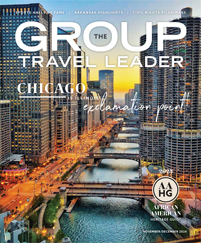Restaurants that appeal to the African American travel market go well beyond simple black history, culture, food or music. They create and share an environment that genuinely captures the connection and passion that people of color desire and feel for each other in their daily lives.
Following are a few great spots for groups that offer authentic tastes and experiences of the Afrocentric diaspora to get your soulful sojourns on the move.
Southern Twist in the Big Apple
Southern classics and contemporary food trends come together at B.Smith’s on Restaurant Row in New York, where the chef serves roasted lemon herb chicken, spicy pan-seared salmon, corn-meal-crusted or blackened Southern catfish, among many other menu items.
Tourists, neighbors, celebrities, entertainment executives, artists and everyday foodies are all treated like stars at this venerable New York City gem. Owned and operated by former African American fashion model, lifestyle expert, iconic restaurateur and author B. Smith, the restaurant emanates an elegant yet delightfully relaxing ambiance, an apt backdrop for its focus on creating unique, upscale American fare with Southern influences.
Sunday brunch features delectable entrees like French toasted butter crackle brioche and sweet potato pancakes. Appetizers encompass classic favorites with a twist, among them fried green tomatoes, sweet citrus spiced wings and black-eyed-pea hummus, while slow-cooked short ribs, Southern-style fried chicken, shrimp and grits, and the “Swamp Thang” — sauteed shrimp, scallops and crawfish in a Dijon cream sauce over Southern-style greens — take center stage.
— www.bsmith.com/restaurants/new-york —
Taste of the Bayou in the Heartland
For a true taste of authentic Cajun flavor in the Midwest, visit Danny’s Big Easy.
Located in the Historic 18th and Vine Jazz District in Kansas City, Missouri, Danny’s doesn’t just offer good eats. It exudes a Louisiana ambiance, flavor and flair that envelopes you mind, body and soul.
The menu encompasses a bevy of authentic Cajun and Creole dishes, including crayfish etouffee, catfish and oyster po’boys, shrimp Creole, red beans and rice with Andouille sausage, barbecue and popcorn shrimp, Danny’s Cajun wings and My Mother’s Gumbo, just to name a few. Most evenings, folks also come to groove to some of the best live zydeco, jazz, blues, reggae, salsa, R&B and funk acts in town.












